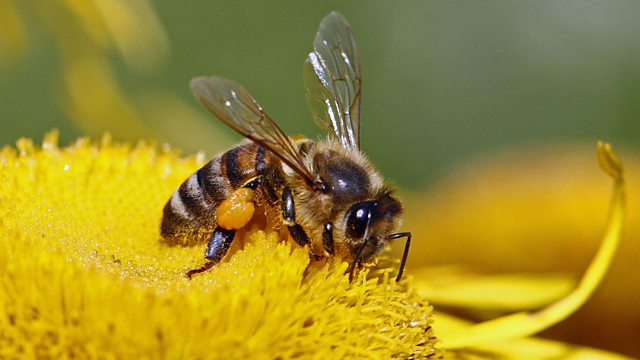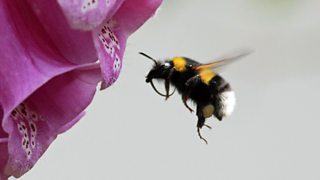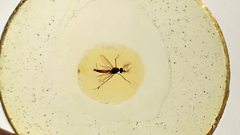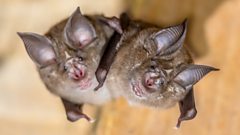Bumblebees prefer food containing neonicotinoid pesticides
Professor Geraldine Wright insect neuroethologist at Newcastle University tested whether honeybees and bumblebees preferred food containing neonicotinoid pesticides over untreated food in the laboratory. The surprising finding was that sugar solution containing two of three neonicotinoid pesticides appeared to be attractive to bees and may act like a drug targeting the brain.
Bees cannot taste neonicotinoids and therefore do not avoid these pesticides, it could be putting them at risk of poisoning when they eat contaminated nectar. But even more worrying, the team found the bees actually preferred to eat pesticide-contaminated food. Neonicotinoids target the same mechanisms in the bee brain that are affected by nicotine in the human brain.
(Photo caption: Honeybee copyright Paul F Donald)
Duration:
This clip is from
More clips from Science In Action
-
![]()
How do chimps learn their skills?
Duration: 15:25
-
![]()
Pompeii: DNA reveals truths about victims' identities
Duration: 04:44
-
![]()
Libanoculex Intermedius—Can carbon capture live up to its hype?
Duration: 00:52
-
![]()
How 'viral sex' in bats can create new hybrid Sars viruses
Duration: 06:05






